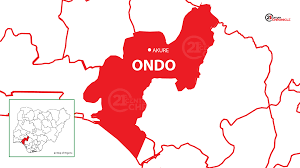Nigeria’s inclusion on England’s red list after cases of the Omicron Covid variant were linked to travel from the country has been condemned as “travel apartheid”.
People arriving in the UK from Nigeria have to spend 10 days in hotel quarantine at a cost of £2,285 and have two negative PCR test results, as part of measures that came into force from 4am on Monday.
The Department of Health said 21 Omicron cases in England were found to be linked to travel from Nigeria. There are 134 reported cases in the UK.
The Nigerian high commissioner to London, Sarafa Tunji Isola, said he agreed with the UN secretary general, António Guterres, who criticised measures imposed by various countries against African nations as “travel apartheid”.
Isola told BBC Radio 4’s Today programme: “The reaction in Nigeria is that of travel apartheid. Because Nigeria is actually aligned with the position of the UN secretary general that the travel ban is apartheid, in the sense that we’re not dealing with an endemic situation, we are dealing with a pandemic situation and what is expected is a global approach, not selective.”
He added: “[Omicron] is classified as a mild variant – no hospitalisations, no deaths. So the issue is quite different from the Delta variant. I mean, the position has to be taken based on scientific and empirical evidence. It is not a kind of panicky situation. We must have the facts.”
The UK minister for policing, Kit Malthouse, said the phrase “travel apartheid” was “very unfortunate language”.
“We understand the difficulties that’s created by these travel restrictions, but we’re trying to buy a little bit of time so that our scientists at Porton Down can work on the virus and assess how difficult it’s going to be for us to cope with as a country,” he told Today.
Yvette Cooper, the shadow home secretary, said Labour supported the measures because there was a need “to stop there being lots of additional new cases” of Omicron to slow its spread. “That’s what happened in the first wave, it’s also what happened in the Delta wave,” she said.
Dozens of countries have imposed sweeping travel restrictions on African nations, some of which have yet to detect any cases of the variant. It has reignited the debate over the effectiveness of border closures and measures have been met with outrage and claims of scapegoating regions after South Africa raised the alarm about the new variant.
Guterres said bans that isolate specific countries or regions are “not only deeply unfair and punitive, they are ineffective”. He added: “We have the instruments to have safe travel. Let’s use those instruments to avoid this kind of, allow me to say, travel apartheid, which I think is unacceptable.”
His comments echoed those of Tedros Adhanom Ghebreyesus, the director general of the World Health Organization, who said last week it was “deeply concerning” that southern African countries were being “penalised by others for doing the right thing”, and called for countries to take “rational, proportional risk reduction measures in keeping with international health regulations”.
The WHO’s technical lead on Covid-19, Maria Van Kerkhove, said travel bans had limited the ability of South African researchers to ship virus samples out of the country. “We do not want to see countries penalised for sharing information, because this is how WHO and our partners make assessments and how we provide advice,” she said.
Leaders of African countries have also condemned the bans as unfair. The South African president, Cyril Ramaphosa, said on Sunday the measures were “deeply disappointing”, adding: “The prohibition of travel is not informed by science. Nor will it be effective in preventing the spread of this variant. The only thing the prohibition on travel will do is to further damage the economies of the affected countries and undermine their ability to respond to and also to recover from the pandemic.”
The president of Malawi, Lazarus Chakwera, wrote on Facebook: “Covid measures must be based on science, not Afrophobia.”
“… we have a small favour to ask. Since we started publishing 200 years ago, tens of millions have placed their trust in the Guardian’s high-impact journalism, turning to us in moments of crisis, uncertainty, solidarity and hope. More than 1.5 million readers in 180 countries have recently taken the step to support us financially – keeping us open to all and fiercely independent.
“With no shareholders or billionaire owner, we can set our own agenda and provide trustworthy journalism that’s free from commercial and political influence, offering a counterweight to the spread of misinformation. When it’s never mattered more, we can investigate and challenge without fear or favour.
“Unlike many others, Guardian journalism is available for everyone to read, regardless of what they can afford to pay. We do this because we believe in information equality. This way, everyone can keep track of global events, understand their impact on people and communities, and become inspired to take meaningful action.
“We aim to offer readers a comprehensive, international perspective on critical events shaping our world – from the Black Lives Matter movement, to the new American administration, Brexit, and the world’s slow emergence from a global pandemic. We are committed to upholding our reputation for urgent, powerful reporting on the climate emergency, and made the decision to reject advertising from fossil fuel companies, divest from the oil and gas industries, and set a course to achieve net zero emissions by 2030.
“If there were ever a time to join us, it is now. Every contribution, however big or small, powers our journalism and sustains our future.”




